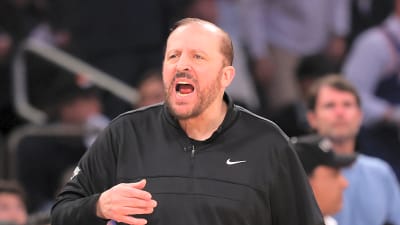
Earlier this year, Utah football coach Kyle Whittingham said he surely lost recruits and current players due to NIL deals at other schools.
The Utes are hoping that revenue sharing through the House vs. NCAA settlement can help balance out the playing field.
The Big 12 annual meetings wrapped up in Orlando on Friday and among the attendees was Utah athletic director Mark Harlan. He talked about the Utes’ revenue-sharing preparation and what he hopes to do in Year 1, assuming the settlement is approved.
Utah’s Mark Harlan on Revenue Sharing
The Utes have been preparing for this for a while, per KSL Sports. Harlan and his team have brought Utah’s NIL collectives in-house, something that is allowed in the House settlement. He hired a chief revenue officer, Patrick Nowlin, who has been on the job for nine months. His job? Find creative ways to raise the money needed to be able to share up to $20.5 million per year with student-athletes.
Harlan also said they’re leveraging the experience of their university president, Taylor Randall, who at one time was the dean of the university’s college of business.
Harlan also said there has been some reorganization in the athletic department. And, continued sellouts for football games and generating more revenue from other sports, such as college basketball, are key to the effort.
“We feel very good about where we’re at, we’ve been preparing for well over a year, we’ve had working groups internally looking at how we’re going to distribute revenue,” Harlan stated. “We’re certainly going to be at the max distribution at the University of Utah, thanks to our great donors, our great administrative support, so we’re excited about it.”
The House v. NCAA settlement is a combination of three different cases brought by current and former student-athletes. It will allow for $2.75 billion in damages will be paid to thousands of college athletes over 10 years as part of restitution for their inability to access things like Name, Image and Likeness (NIL) opportunities.
The settlement also caps rosters and, in some cases, expands rosters, especially in the case of Olympic sports. Plus, it allows for schools to fully fund every scholarship offered, which wasn’t the case pre-House.
The House settlement doesn’t limit student-athletes from engaging in NIL and many schools are bringing outside collectives in-house. But every NIL deal of more than $600 must be vetted and approved by the new NIL Go system being developed by Deloitte.
More must-reads:
- One of these five teams will win the 2025-26 CFP National Championship
- 2025 Chicago Bears win total, prediction
- The 'NBA active leaders in made field goals' quiz
Breaking News
Trending News
Customize Your Newsletter
 +
+
Get the latest news and rumors, customized to your favorite sports and teams. Emailed daily. Always free!








